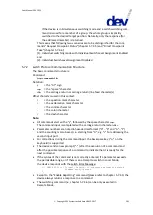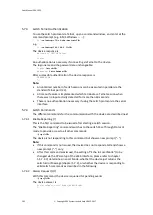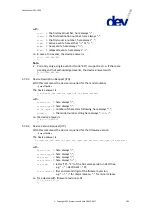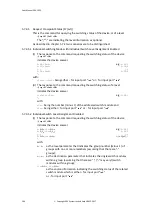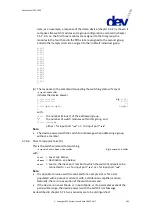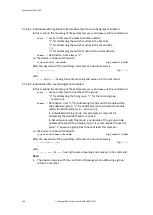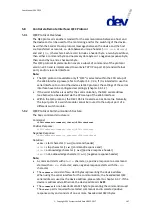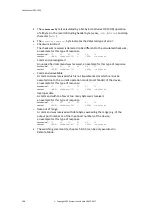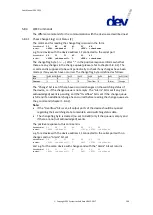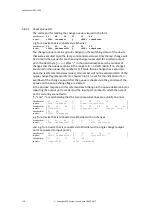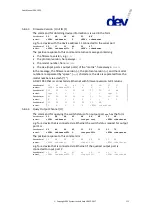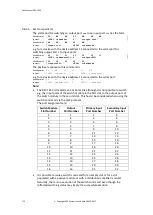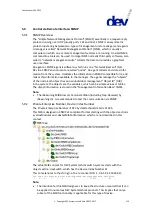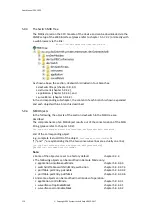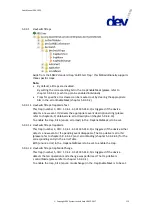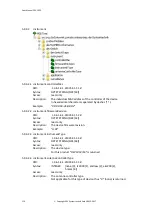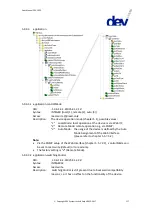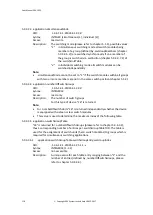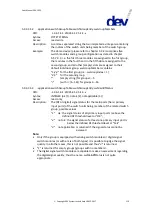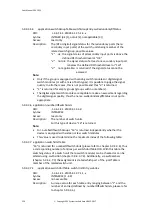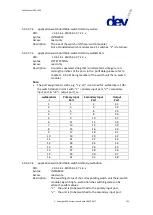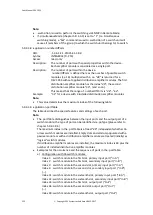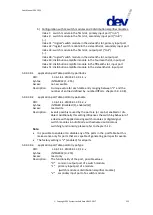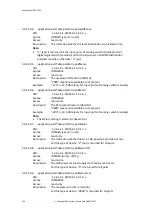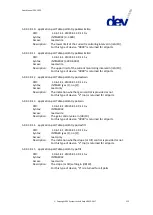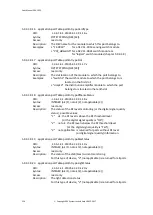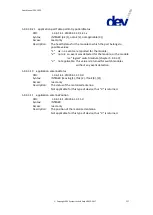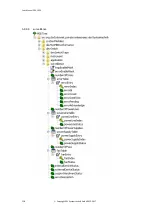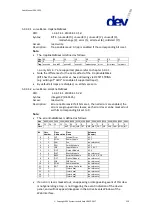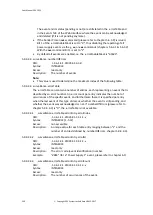
User Manual DEV 1953
Copyright DEV Systemtechnik GmbH 2015-2017
115
5.9.4.1
.devSwitchTraps
Aside from the SNMP standard trap 'Cold Start Trap', this MIB additionally supports
three specific traps:
Note:
By default, all traps are disabled.
By setting the corresponding bit in the .trapEnableMask (please refer to
chapter 5.9.4.4.1) each trap can be enabled individually.
Traps for specific error classes can be masked out by clearing the appropriate
bits in the .errorEnableMask (chapter 5.9.4.4.2).
5.9.4.1.1
.devSwitchTraps.trapAlarmText
This trap (number 3, OID: .1.3.6.1.4.1.21035.41.0.3) is triggered if the device
detects a new event. It delivers the appropriate event description string (please
refer to chapter 6.1) obtained via .errorDescription (chapter 5.9.4.4.14).
To enable the trap, bit 6 (enum: errortext) in the .trapEnableMask is to be set.
5.9.4.1.2
.devSwitchTraps.trapAlarm
This trap (number 4, OID: .1.3.6.1.4.1.21035.41.0.4) is triggered if the device either
detects a new event or if a pending event disappears. The trap delivers .errorNr
(please refer to chapter 5.9.4.4.4.2) and .errorPending (chapter 5.9.4.4.4.5) for the
corresponding entry in the .errorTable.
Bit 5 (enum: error) in the .trapEnableMask is to be set to enable the trap.
5.9.4.1.3
.devSwitchTraps.trapModeChange
This trap (number 5, OID: .1.3.6.1.4.1.21035.41.0.5) is triggered if the device
detects that an operation mode change was performed. The trap delivers
.controlMode (please refer to chapter 5.9.4.3.1).
To enable the trap, bit 4 (enum: modechange) in the .trapEnableMask is to be set.

